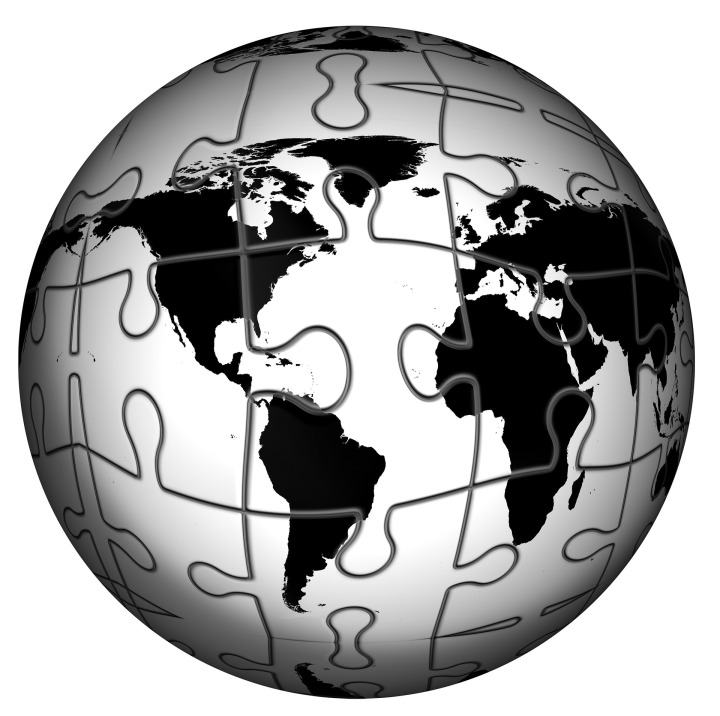I teach global leadership and applied ethics. Students often have questions about the differences between patriotism, nationalism and globalism. This post explores the differences and their ethical implications.
There has been a lot of recent discussion around nationalism. The term has been used in ways that seem to put it on par with patriotism. To understand how it’s different, I’ll take a look at nationalism, patriotism and globalism using an ethical lens. Without seeing them through an ethical lens, the differences are less clear. Using an ethical lens, we begin to see that what appear to be subtle variations are vast differences in intent and impact.
The Merriam-Webster Dictionary defines patriotism as “love for or devotion to one’s country” and nationalism in part as “loyalty and devotion to a nation.” While they seem positive and similar at the surface level, Merriam-Webster goes on to clarify how they are different:
“the definition of nationalism also includes ‘exalting one nation above all others and placing primary emphasis on promotion of its culture and interests as opposed to those of other nations…’ This exclusionary aspect is not shared by patriotism.” Merriam-Webster, The Difference Between ‘Patriotism’ and ‘Nationalism’
Patriotism is pride in country, which is positive, but when it loses its grounding and takes a detour around ethical values it becomes something completely different. George Orwell, Bart Bonikowski and Noam Chomsky reflect on how nationalism impacts our actions and behaviors:
“By ‘nationalism’ … I mean the habit of identifying oneself with a single nation or other unit, placing it beyond good and evil and recognising no other duty than that of advancing its interests.”
George Orwell, Notes on Nationalism
“The study of nationalism in settled times is not a unified field, but the multiple research streams described here offer…how such beliefs shape support for authoritarian politics and exclusionary policies.”
Bart Bonikowski, Nationalism in Settled Times, Harvard.edu
Patriotism and Nationalism in the Global Context
Merriam-Webster Dictionary defines globalism as “a national policy of treating the whole world as a proper sphere for political influence.” Seeing the world as a global village helps us consider the impact of our choices on a wider scale. If we don’t consider our impact on the rest of the world, we are operating with blinders on, ignoring the realities of the global context. We’re ignoring important ethical variables including human rights and respect for differences. Noam Chomsky said in a speech in Glasgow that “nationalism has a way of oppressing others.” If we follow that line of thinking, we begin to need to ask a powerful question – “Is nationalism simply patriotism without ethics?” Consider this important question as you think about these two very different views of the world and our place in it.
Globalists:
- recognize the connectedness of our global economy and consider the impact of decisions on a global scale
- recognize that all people are equal and deserve to be treated with respect, regardless of where they come from
- acknowledge diverse cultures and traditions of the world as all important
- see the world as one big community of people
Using a globalist world view, patriotism is pride in one’s country in the context of the global village.
Nationalists:
- consider their country to be “the best”
- think about people outside their country as less important, of a lower status or inferior to those in their own country
- ignore cultural diversity and only feel comfortable with the traditions of their own country
- make decisions that benefit their own country and fail to consider the negative impact on the rest of the world
- think of people who came from outside their country as not deserving the respect or fair treatment that would be offered to people in their own country
Using a nationalist world view, patriotism is a desire for exclusive benefits for one’s country, without regard for the impact on those beyond its borders.
How Different World Views Impact Our Ethical Choices
Let’s look a little deeper at the differences between globalism and nationalism. A person with a globalist worldview is more likely to value peaceful global relations among countries (seeing the world as a community) and a person with a nationalist worldview is more likely to value “winning” in the global arena (seeing one country as the best and entitled to more than the other countries). This nationalist sense of superiority and entitlement can lead to decisions that unfairly target, exclude and harm those from other countries. Someone with a nationalist worldview could be seen as lacking ethical competence due to failing to consistently honor human rights, and lacking cultural awareness and respect for differences. If we acknowledge the complexity of this issue, there are likely “shades of nationalism” that reflect combining patriotism with widely varying degrees of ethical awareness and action.
Using an ethical lens, patriotism and nationalism are more than different ways of seeing the world. They are ethically aware (patriotism + globalism) and ethically unaware (nationalism), respectful of differences (patriotism + globalism) and not respectful of differences (nationalism) on a sliding scale of degrees. Through an ethical lens, nationalism looks like patriotism that ignores the global context and ethical responsibility.
Resources
- Bart Bonikowski, Nationalism in Settled Times, Harvard.edu
- Terry Mitchell, Globalism Versus Patriotism: A Clash of World Views and Allegiance, LinkedIn Pulse
Questions For Discussion
- Where have we seen recent examples of nationalism?
- In those examples, was there a detour around ethical values, ethics codes and/or global agreements?
- Do you think that nationalism is “patriotism without ethics”? Why or why not?
Click the cover to read a free preview!
©2019 Leading in Context LLC



1 comment